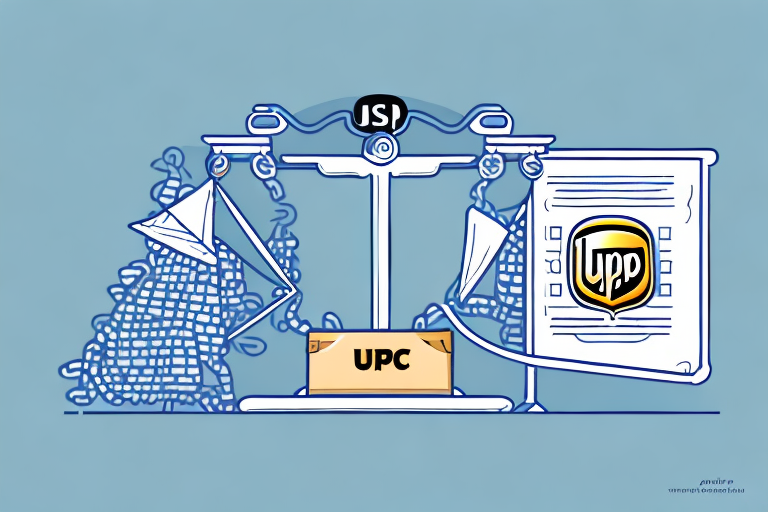Understanding UPS Declared Value vs Shipping Insurance
When shipping items through UPS, it's crucial to comprehend the differences between UPS Declared Value and shipping insurance. Both options offer protection for your packages in the event of loss or damage during transit, but they operate differently and offer varying levels of coverage. This article provides an in-depth analysis of each service, their benefits and limitations, and guidance on choosing the best option for your shipping needs.
UPS Declared Value
What is UPS Declared Value?
UPS Declared Value is an additional service that allows you to declare the value of your shipment beyond the standard liability coverage. This service ensures that UPS assumes liability for the declared value of your package in case of loss or damage during transit.
Coverage and Benefits
- Protection Against Loss and Damage: Covers the declared value of the package up to $50,000.
- Cost-Effective: Priced at $0.90 per $100 of the declared value, making it a budget-friendly option for many shippers.
- Ease of Purchase: Can be easily added during the shipment process without requiring extensive paperwork.
Limitations
- Coverage Cap: Maximum coverage is limited to $50,000 per package.
- Exclusions: Does not cover incidental costs like shipping fees or damages due to improper packaging.
- Availability: Not available for all types of shipments, with certain restrictions applying.
How is UPS Declared Value Calculated?
The cost is calculated based on the declared value of your package. For example, declaring a value of $1,000 would cost $9.00. Accurate declaration is essential to ensure proper coverage, and UPS may require additional documentation for high-value shipments. For more details, refer to the UPS Declared Value Information.
Shipping Insurance
What is Shipping Insurance?
Shipping insurance is a third-party service that provides coverage for the full value of your package in case of loss or damage during transit. Unlike UPS Declared Value, shipping insurance is offered by independent providers and can often be tailored to meet specific needs.
Coverage and Benefits
- Comprehensive Coverage: Typically covers the full value of the package, including shipping costs and incidental expenses.
- Flexible Options: Various plans are available to suit different levels of protection and types of shipments.
- Higher Coverage Limits: Some providers offer coverage exceeding the standard UPS Declared Value limits.
Limitations
- Additional Costs: Shipping insurance can be more expensive than UPS Declared Value, especially for high-value items.
- Documentation: Requires detailed documentation and accurate declaration of the package's value to process claims.
- Exclusions: Certain conditions, such as improper packaging or prohibited items, may void coverage.
How is Shipping Insurance Calculated?
The cost of shipping insurance varies based on the declared value, destination, and shipping method. On average, rates range from 1% to 3% of the package's value. For instance, insuring a $1,000 package might cost between $10 and $30, depending on these factors. It's advisable to compare quotes from multiple providers to find the most cost-effective option.
For more information, visit reputable insurance providers like InsureShip.
Comparing UPS Declared Value and Shipping Insurance
Similarities and Differences
Both UPS Declared Value and shipping insurance aim to protect your packages against loss and damage. However, they differ in terms of coverage limits, cost, and the provider offering the service. UPS Declared Value is integrated into UPS shipping services, while shipping insurance is offered by third-party providers.
When to Use Each Option
- UPS Declared Value: Ideal for shipments valued up to $50,000 where cost-effectiveness and ease of purchase are priorities.
- Shipping Insurance: Best suited for high-value or fragile items requiring comprehensive coverage, including incidental costs.
Choosing the Right Option
Consider the value of your package, the level of protection needed, and your budget when choosing between UPS Declared Value and shipping insurance. For critical shipments, combining both services may offer the highest level of protection.
Purchasing and Filing Claims
How to Purchase UPS Declared Value and Shipping Insurance
To purchase UPS Declared Value, select the option during the shipment process on the UPS website or through their shipping software. For shipping insurance, contact a reputable third-party provider to obtain a policy tailored to your needs.
Filing a Claim with UPS
If your package is lost or damaged, you can file a claim with UPS for the declared value. The process involves submitting a claim form along with necessary documentation, such as a commercial invoice and proof of loss or damage. Detailed instructions are available on the UPS Claims Support page.
Filing a Claim with a Shipping Insurance Provider
For claims under shipping insurance, contact your insurance provider directly to initiate the process. You will need to provide detailed documentation, including the value of the package and evidence of loss or damage. Each provider may have specific procedures, so refer to their guidelines for accurate claim submission.
Choosing Between UPS Declared Value and Shipping Insurance
Factors to Consider
- Package Value: Higher-value packages may benefit more from comprehensive shipping insurance.
- Cost: UPS Declared Value is generally more affordable for shipments within its coverage limits.
- Coverage Needs: Evaluate whether you need coverage beyond basic loss and damage, such as incidental costs.
- Ease of Use: UPS Declared Value is easier to add during the shipping process, while shipping insurance may require additional steps.
Making the Decision
Assess your specific shipping requirements and weigh the pros and cons of each option. For standard shipments, UPS Declared Value may suffice, while shipping insurance offers enhanced protection for high-stakes deliveries.
Conclusion
Choosing between UPS Declared Value and shipping insurance depends on the value of your package, your budget, and the level of protection you require. By understanding the differences, benefits, and limitations of each option, you can make an informed decision that best safeguards your shipments. For high-value or sensitive items, investing in comprehensive shipping insurance may provide the peace of mind needed to ensure your packages arrive safely.








